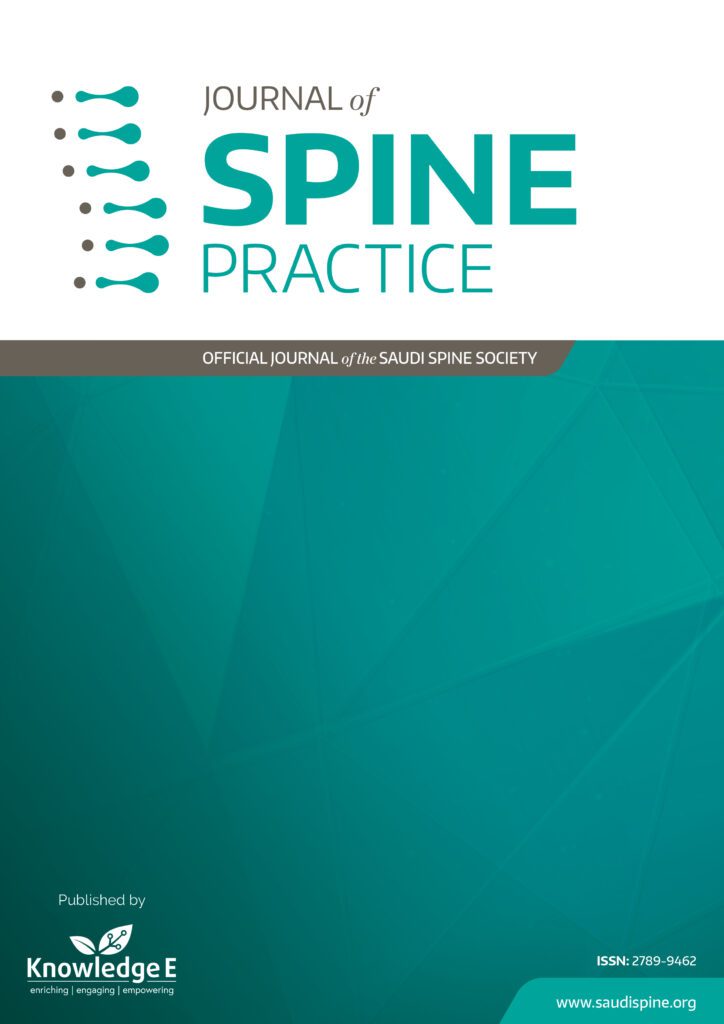
Journal of Spine Practice
ISSN: 2789-9462
Leading research in all spine subspecialties focusing on orthopaedic spine, neurosurgery, radiology, and pain management.
Olfactory Mucosal Auto-transplantation in Spinal Cord Injury: A Clinical Trial, Saudi Arabia
Published date: Nov 07 2021
Journal Title: Journal of Spine Practice
Issue title: Journal of Spine Practice (JSP): Volume 1, Issue 1
Pages: 11
Authors:
Abstract:
Introduction: Spinal cord injury (SCI) results in loss of nervous tissue and consequently loss of motor and sensory function. Despite significant improvements in the early medical and surgical management of SCI, there is no effective treatment available that restores the injury-induced loss of function to a degree that an independent life can be guaranteed. Restoration of function and reversal of paralysis following SCI is among the most daunting challenges in all of neuroscience research.
Methodology: We decided to study the outcomes in chronic SCI (CSCI) after autologous olfactory mucosal transplantation into the spinal cord following detethering of the cord. The human surgical procedure of autologous olfactory mucosal transplantation was first developed by Carlos Lima and his colleagues. These investigators provided guidance for the surgical procedures in this study and the procedures on the first six participants were performed in their presence.
Result: Patients were screened at different centers in the kingdom. A stringent inclusion and exclusion criteria were applied. Patients for this clinical trial were selected from individuals that suffered an SCI at least 12 months before their assessment and were chronically paraplegic or tetraplegic. The final twenty participants were selected after screening more than 125 patients. While some of them were rejected for medical reasons, some refused to participate upon receiving a full briefing and some of them were unable to fulfill the required psychosocial criteria.
Conclusion: The details of the patients and the changes observed in their conditions post olfactory mucosal auto-transplantation will be discussed in detail in oral presentation with graphic results with marked significant improvement in motor and sensory levels of SCI patients as compared to before transplantation of olfactory mucosa. Olfactory unsheathing cells (OECs) are glia cells and continuous axon extension and successful topographic targeting of the olfactory receptor neurons responsible for the sense of smell (olfaction). Due to this distinctive property, OECs have been trialed in human cell transplant therapies to assist in the repair of central nervous system injuries, particularly those of the spinal cord. Although many studies have reported neurological improvement, therapy remains inconsistent and requires further improvement.
References: